Unlock Your True Potential
We Help Entrepreneurs And Subject-Matter Experts Identify and Monetize The Full Spectrum Of Their Knowledge, Ideas, Skills, Gifts, and Talents
about sidhartha peddinti
Sidhartha "Sid" Peddinti is a Business Philosopher, Impact Investor, and Attorney who helps entrepreneurs unlock the hidden vaults of insight, knowledge, and value they already possess.
He believes humans are complex, multidimensional beings who possess the extraordinary ability to shapeshifting into different roles and identities - a process that happens unconsciously and flawlessly. We adjust our tone, energy, and 'personalities' to suit the setting or person.
Yet in business, we’re taught to suppress this evolutionary gift that is in the very fabric of our DNA. We are told to niche down, pick one lane, stay in a box, and focus on tapping into one small segment of our "superpower", instead of harnessing our true gift - the ability to "shape-shift" into different personalities and identities and leverage different segments of our brain to our advantage.
Sid helps entrepreneurs break-free from the noise in the marketplace that's diluting this evolutionary gift and unlock all the "Experts In You". These are The Speaker, the Writer, the Educator, the Mentor, the Researcher, the Philanthropist, the innovative Disruptor - each with acquired skillsets that you can harness in diverse ways.
It turns out that the answers we seek to unlock our true potential as entrepreneurs, and as humans, is not "out there" somewhere - it's been with us all along - WE are the answer. It's time to stop running a business, and realize that "I Am The Business™".
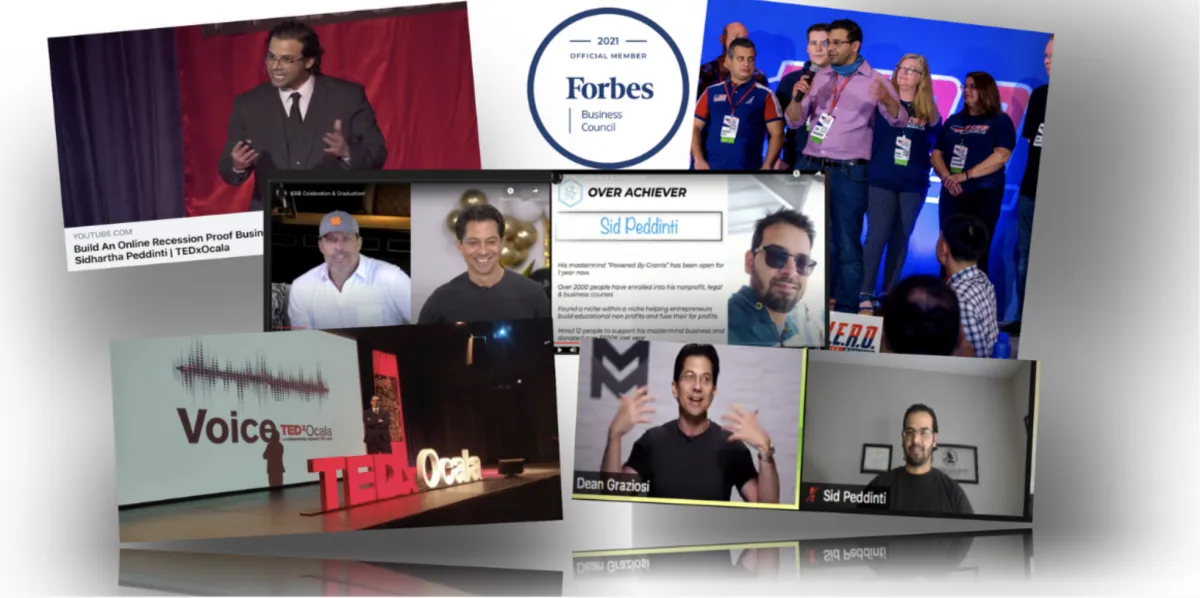
sid shares his business philosophies across various publications, stages, and platforms

Don't Just Run A Business - Become THE Business™
Are You Ready To Explore And Monetize The Real "Brains Behind The Business" - The Real You?!
Jay-Z said it best: “I’m not a businessman. I am a business, man.”
So ask yourself: Are you running a business, or are you THE business?
Behind your LinkedIn title - lawyer, coach, consultant, doctor, founder - is a vault of untapped insights, ideas, and intellectual identities. You’re not just one brand. You’re a mosaic of expert voices: the strategist, the writer, the speaker, the marketer, the AI trainer, the educator, the disruptor. Each one holds the power to create influence, income, recognition, and legacy.
But most of us have been taught to limit our potential, niche down, pick one offer, and go viral by "scaling" ads, videos, or niched offerings. Meanwhile, the so-called “gurus” are quietly playing all their cards: speaking, coaching, investing, publishing, partnering, and building empires.
They've tried it all, yet preach a different message on the surface - but that's the world of "internet marketing" and entrepreneurial brainwashing that has curbed, stuttered, and diluted your true potential - as an entrepreneur, as a professional, as a writer, as a speaker, a thought leader, and a revolutionary business leader.
Yes - you ARE all those things - not just a lawyer, coach, digital marketer, finance manager, or whatever your LinkedIn title confines you to say.
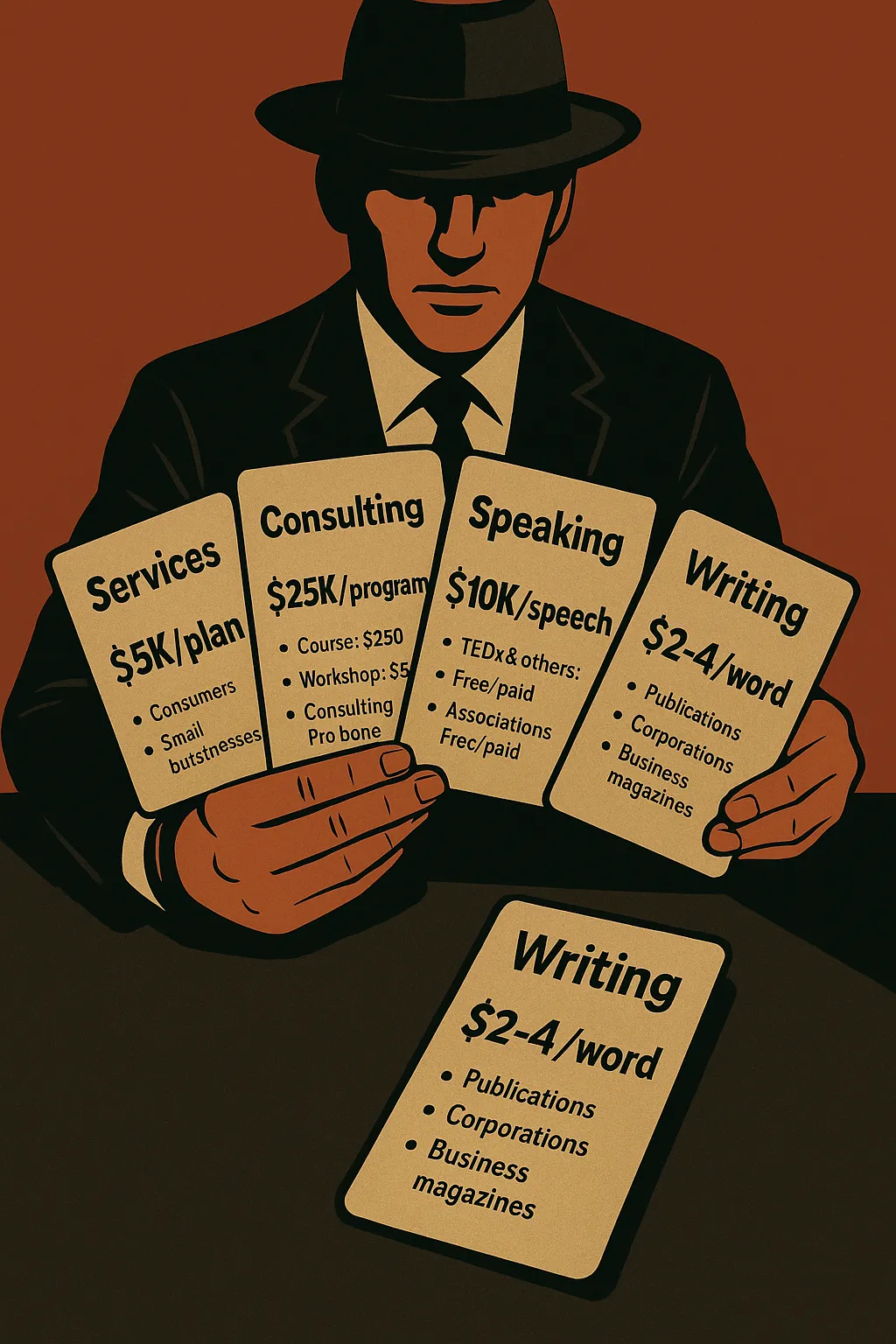
It’s time to reclaim your complete deck of cards, and monetize ALL your skills and capabilities - but to do that effectively, you need to tune out the noise and dive deeper into yourself and explore the "real brains behind the business" - the REAL YOU...
Not the diluted, one-dimensional, cookie-cutter version that's storing all their best skills, talents, insights, ideas, and brilliance for the "future", when the time is right, and once they first learn how to do x,y,z before they unleash their true potential.
PSA: You ARE READY. That time is now - life is short, tomorrow is not guaranteed - what are you waiting for?
YOU HAVE THE PERMISSION to explore, identify, and and take 100% control of your deck of card - you don't need the internet gurus pointing out the "missing" dots - there are no missing dots. You ARE the business, you've always been the business - your professional firm, or niched offering is one card out of an entire stack of cards, each worth millions.
Don't just run a business - you ARE the business!
Unleash Your Expertise In Diverse Ways & With Diverse Titles
No More Internal Conflicts, No More Confusion, And No More External Noise - Just Pure Opportunities, Growth, and Fulfillment Across All Fronts
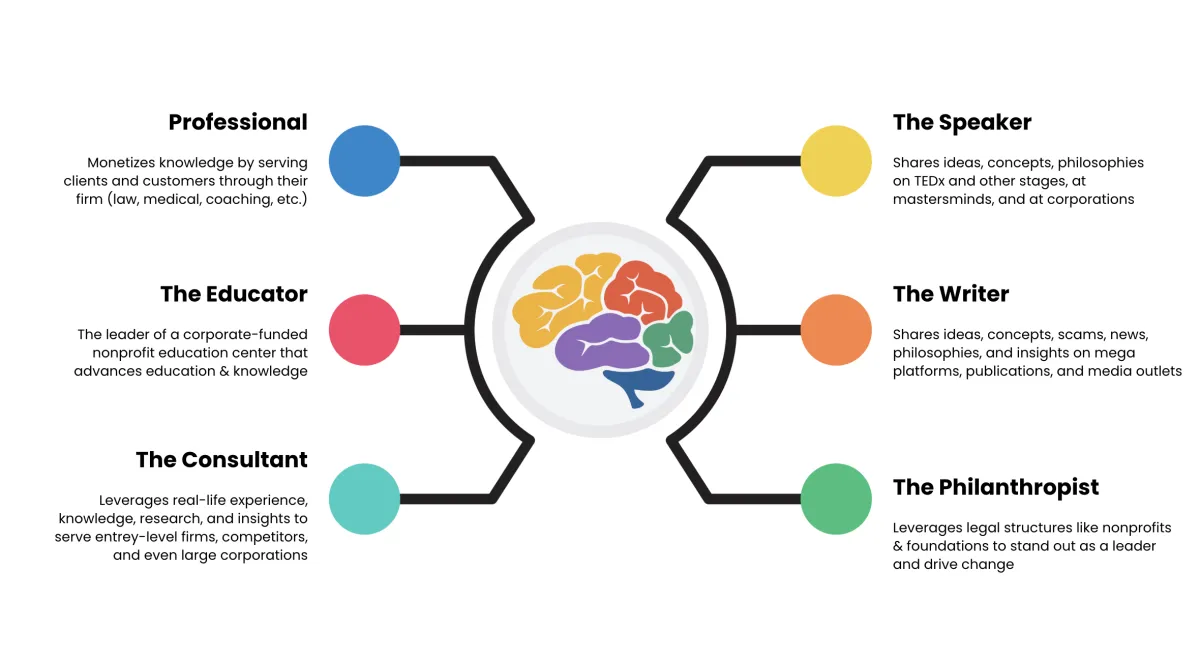
Awaken & Unleash The Experts In You
Most Entrepreneurs Limit Themselves To One Mode of Monetization - Usually Their Professional Service Offerings. Learn How To Remove Those Limits And Unlock A Blue Ocean Of Opportunities, Income, Influence, Freedom, and Fulfillment - All of Which Are Right At Your Fingertips.
Chat With Sid
I love sharing, discussing, exploring, and unlocking new ideas and concepts - irrelevant of success. I would love to continue the conversation, about business, marketing, strategy, technology, philosophy, human potential, or anything else - I'm ready to learn and/or share.
We're all on this journey together and really just learning as we go - let's see where our paths lead us. Message me on any of these channels below...
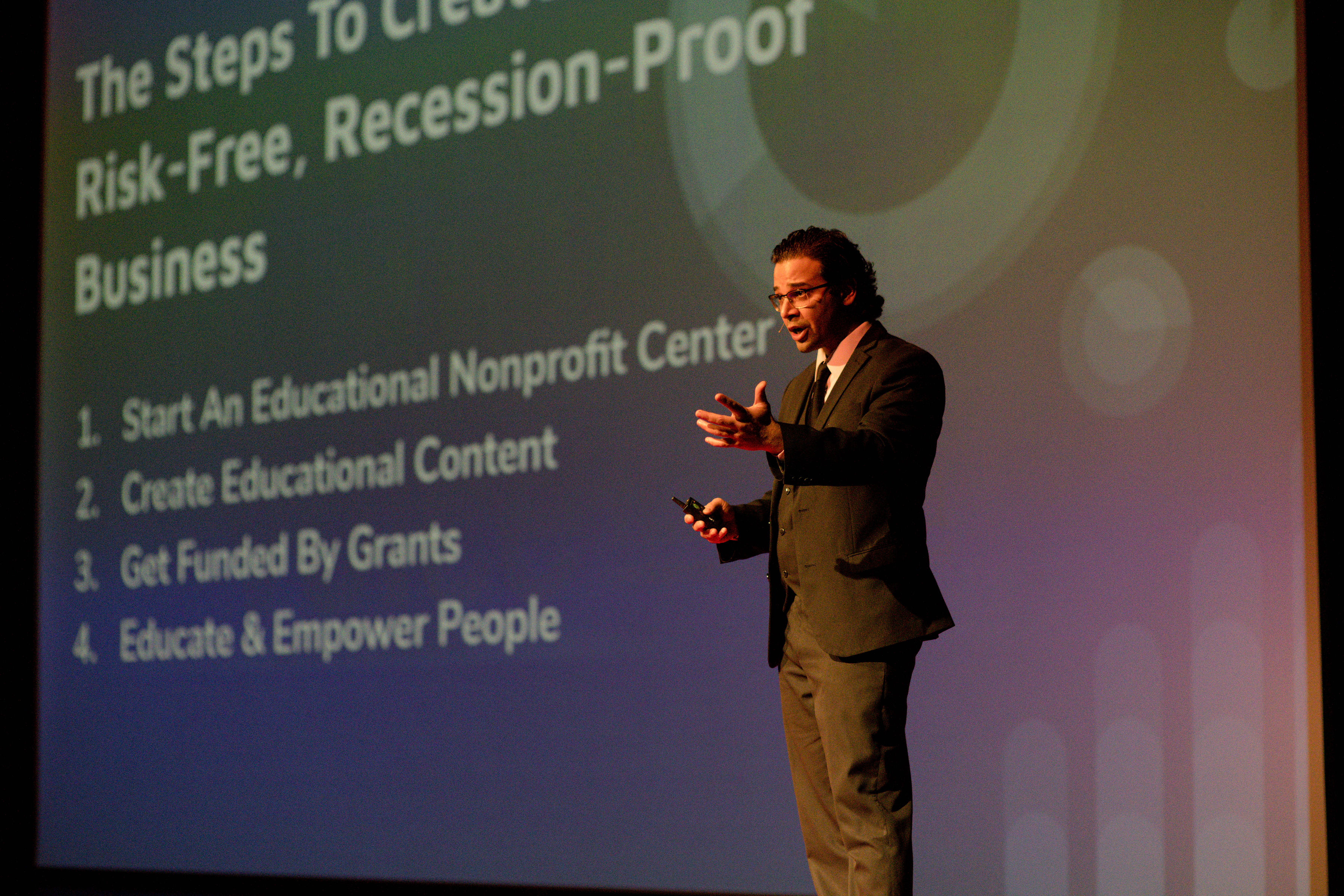
Become All That You've Been Created To Be
Industry-Disruptive, Thought-Provoking, And Life-Altering Stories, Views, and Business Philosophies
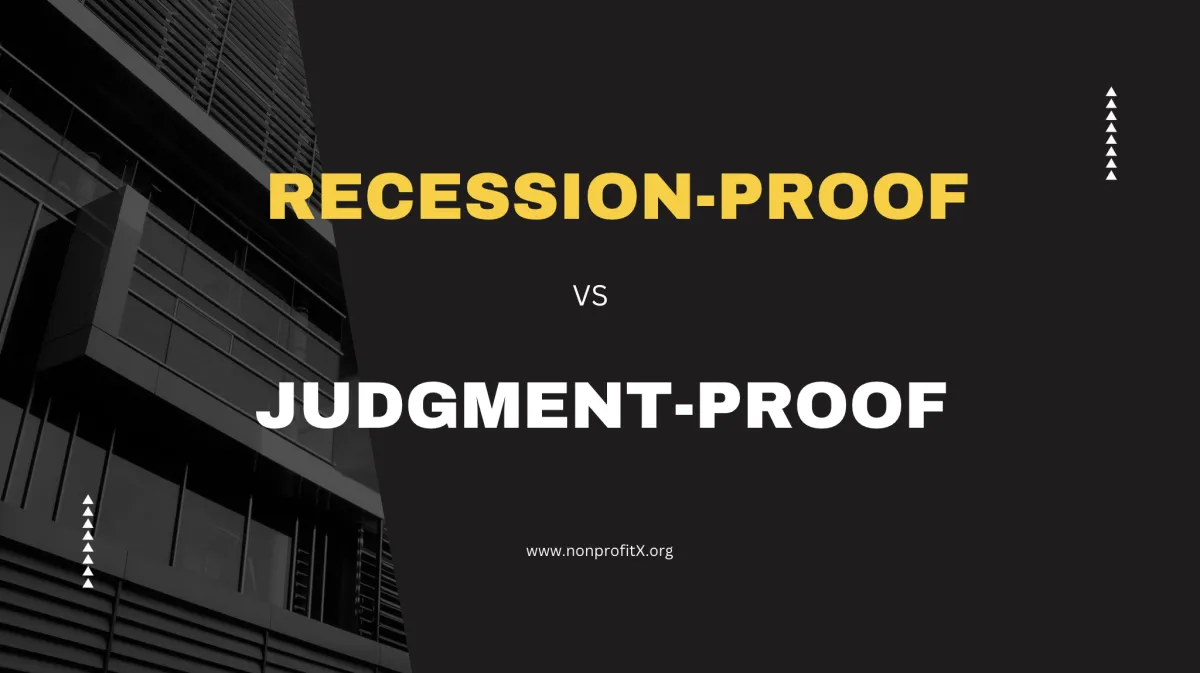
Stages of creating a risk-free business model
Stages of 'Proofing' Your Business: How to Recession-Proof, Bankruptcy-Proof, and Judgment-Proof Your Company
Introduction: Why Every Business Needs Protection
Stages of creating a risk-free business model
Introduction: Why Every Business Needs Protection
Stage 1: Recession-Proofing – Leveraging AI, Grants, and Alternative Funding
2. Securing Grants and Non-Debt Funding
3. Diversifying Revenue Streams
Stage 2: Bankruptcy-Proofing – Eliminating Personal Risk in Business Operations
1. The Power of the Nonprofit Model
2. Building a Hybrid Business Model
3. Eliminating Personal Guarantees & Business Debt
Stage 3: Judgment-Proofing – Protecting Yourself From Lawsuits and Collections
1. Separating Personal & Business Assets
2. Leveraging Anonymous Ownership Structures
In a world of economic uncertainty, business leaders must think beyond growth and profitability. The real question is: How resilient is your business? Can it withstand economic downturns, financial crises, and legal threats?
Traditional businesses are vulnerable to three major threats:
1. Recession risk – Economic downturns that shrink cash flow and kill demand.
2. Bankruptcy risk – A financial collapse that puts both business and personal assets in jeopardy.
3. Judgment risk – Lawsuits and liabilities that can drain financial resources.
This article explores how businesses can implement a three-stage proofing strategy to recession-proof, bankruptcy-proof, and judgment-proof their operations.
Stage 1: Recession-Proofing – Leveraging AI, Grants, and Alternative Funding
A recession-proof business can maintain operations and profitability despite economic downturns. This requires adaptive strategies, smart automation, and financial insulation.
1. Embracing AI and Automation
During recessions, businesses with high operational costs are the first to struggle. AI-driven automation helps reduce expenses while maintaining productivity.
- AI for customer service: Chatbots and AI-driven customer engagement reduce overhead.
- AI for finance & risk management: Predictive analytics help businesses identify and mitigate risks.
- AI for marketing: Automated campaigns optimize ad spending and improve ROI.
Example: A study by McKinsey found that AI adoption during downturns helps companies recover faster and outperform competitors post-recession ([Source](https://www.mckinsey.com)).
2. Securing Grants and Non-Debt Funding
Unlike loans, grants provide free capital with no repayment obligations. Businesses can tap into various funding sources:
- Government Grants – Federal and state agencies offer funding for innovation, sustainability, and workforce development.
- Nonprofit & Foundation Grants – Organizations fund industry-specific initiatives.
- Corporate Sponsorships – Large corporations partner with small businesses for community-driven projects.
Example: The U.S. Small Business Administration (SBA) provides grants for research, disaster relief, and innovation ([Source](https://www.sba.gov)).
3. Diversifying Revenue Streams
Businesses that rely on a single revenue source are at high risk during economic downturns. Diversification strategies include:
- Subscription models – Steady, recurring revenue mitigates sales volatility.
- B2B & B2C hybrid models – Expanding client bases cushions financial shocks.
- Government contracts – Long-term stability through public-sector partnerships.
Example: Netflix transitioned from DVD rentals to streaming subscriptions, securing a recession-resistant revenue model.
Stage 2: Bankruptcy-Proofing – Eliminating Personal Risk in Business Operations
Most business failures result in personal financial ruin because owners don’t properly separate their personal assets from business liabilities. A bankruptcy-proof business:
1. Limits personal liability
2. Accesses funding without personal risk
3. Structures ownership for legal protection
1. The Power of the Nonprofit Model
A nonprofit business structure prevents personal liability while allowing access to grants and donations.
- No Personal Guarantees – Unlike for-profits, nonprofits don’t require owners to sign personal guarantees for loans or liabilities.
- Tax-Exempt Status – Nonprofits qualify for IRS tax exemptions, minimizing financial burden.
- Access to Donor Funding – Unlike for-profits, nonprofits receive tax-deductible donations and foundation grants.
Example: Over $500 billion is donated annually to nonprofits in the U.S. ([Source](https://www.nptrust.org)).
2. Building a Hybrid Business Model
A hybrid model combines nonprofit benefits with for-profit income streams. Entrepreneurs can:
- Own a for-profit company while running a nonprofit for social impact.
- Leverage a nonprofit to receive grants while using a for-profit to sell services.
- Ensure legal separation to keep personal assets safe from business liabilities.
Example: Tesla operates as a for-profit company but receives billions in government grants and tax credits due to its sustainability initiatives.
3. Eliminating Personal Guarantees & Business Debt
Many business owners personally guarantee loans, leases, and vendor agreements, putting personal assets at risk. To mitigate this:
- Negotiate agreements without personal guarantees
- Use business credit, not personal credit
- Structure business ownership under a holding company
Example: Real estate investors use LLCs and trusts to keep personal assets separate from business operations, shielding themselves from debt.
Stage 3: Judgment-Proofing – Protecting Yourself From Lawsuits and Collections
Even profitable businesses can be wiped out by lawsuits. A judgment-proof business ensures that even if sued, creditors have nothing to collect.
1. Separating Personal & Business Assets
A properly structured business protects personal wealth from legal judgments.
- Using Trusts – A Domestic Asset Protection Trust (DAPT) shields personal assets from lawsuits.
- Holding Companies – Owning assets through an LLC or holding company protects individual businesses from liability.
- Insurance & Umbrella Policies – A comprehensive insurance plan covers liability risks.
Example: Billionaires like Elon Musk and Jeff Bezos keep their wealth in trusts and diversified holdings to limit personal exposure to lawsuits.
2. Leveraging Anonymous Ownership Structures
Some jurisdictions allow businesses to register under anonymous LLCs, preventing creditors from discovering assets.
- States like Wyoming and Nevada provide business anonymity, making it harder for lawsuits to trace assets.
- Offshore Business Entities – Incorporating offshore can provide additional legal layers of protection.
Example: Many global corporations use Delaware LLCs and offshore trusts to maintain privacy and legal protection.
3. Keeping Assets in Non-Seizable Vehicles
- Retirement accounts – Protected under ERISA laws from lawsuits.
- Life insurance & annuities – Often shielded from creditors in legal disputes.
- Nonprofit endowments – Funds held by nonprofits are generally not subject to personal lawsuits.
Example: O.J. Simpson was legally required to pay a $33 million civil judgment but avoided payment by keeping assets in protected pension funds.
---
Conclusion: The Ultimate Risk-Free Business Model
Most business owners focus on making money, but the smartest entrepreneurs focus on keeping it.
By implementing these three layers of protection, businesses can:
✅ Survive economic downturns (Recession-Proofing)
✅ Operate without personal financial risk (Bankruptcy-Proofing)
✅ Avoid financial devastation from lawsuits (Judgment-Proofing)
The best businesses combine these principles, leveraging AI, grants, alternative structures, and asset protection tools to scale safely and sustainably.
If you're serious about long-term success, it's time to 'proof' your business.
A Quick Reminder


Innovation
Fresh, creative solutions.

Integrity
Honesty and transparency.

Excellence
Top-notch services.

FOLLOW US
COMPANY
CUSTOMER CARE
LEGAL
Copyright 2025. **Nonprofits&Foundations: 2025. All Rights Reserved.
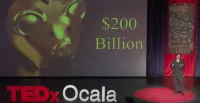
Facebook
Instagram
X
LinkedIn
Youtube
TikTok